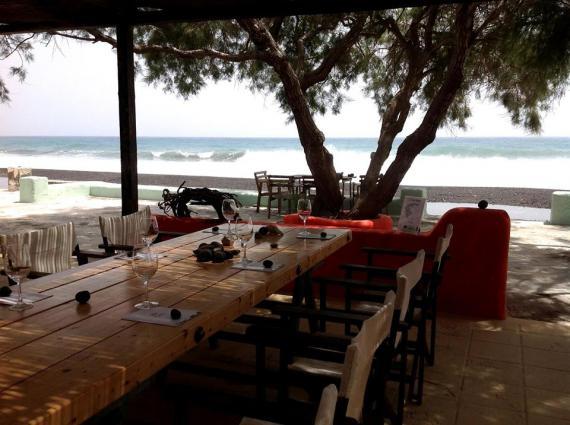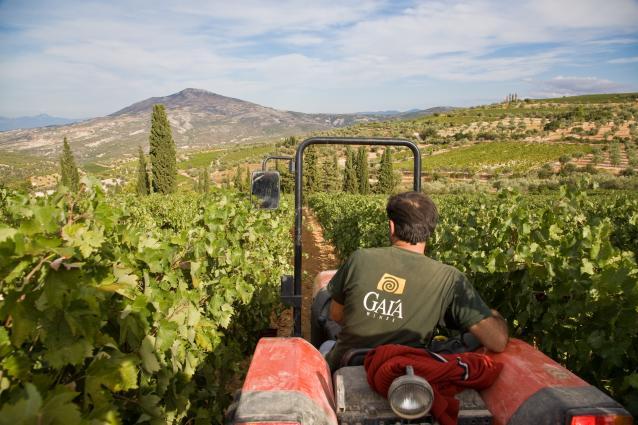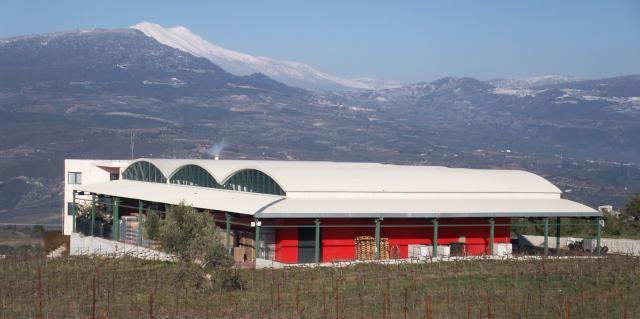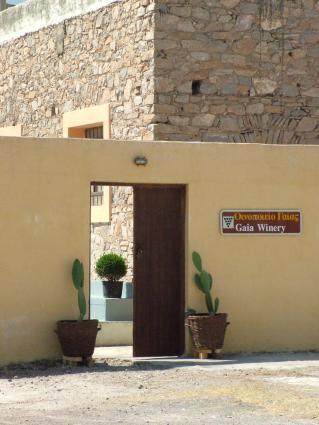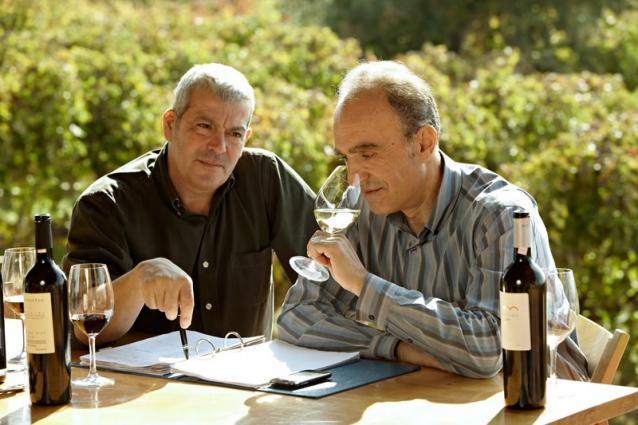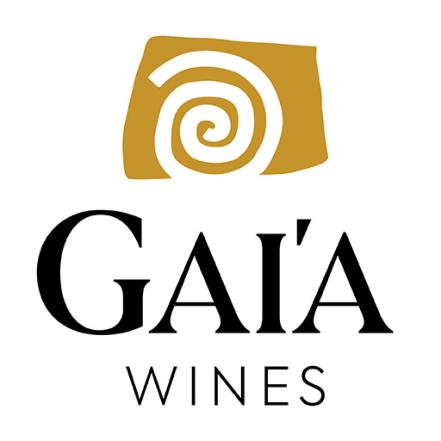GAI'A
Ritinitis Nobilis
GAI'A
Ritinitis Nobilis
One of the pioneers of the modern Greek wine revolution, Gai’a Estate (pronounced Yay-ya) was established in 1994 by Leon Karatsalos and winemaker Yiannis Paraskevopoulos. Their mission was to capture the best that Greece’s indigenous grapes have to offer by merging traditional viticultural and production methods with innovative techniques. The estate is named after “Mother Earth,” in honor of the unique terroir that gives birth to these world-class wines.
Wine Production
The Retsina of Greek antiquity developed its distinctive flavor from pine resin that was used to seal the porous surface of the clay amphora used to store and transport wine. Although resin is no longer needed to provide air-tight containers for wine, today it is added directly to the must during the fermentation process in order to achieve the signature flavor profile. The grapes for the Ritinitis Nobils are destemmed prior to crushing. Only the free-run juice is used for fermentation. A carefully calculated quantity of resin from the Pinus Halepensis pine tree is added to the must (less than 0.3 gr/L). After fermentation, the wine is clarified with bentonite, followed by cool stabilization (25°F) for controlled tartrate precipitation.
Tasting Notes
Highly regarded as one of the few high quality Retsina on the market today, this dry white strikes an impressive balance between the flavors of the varietal and pine. Elegant aromas of citrus fruit are accented by hints of mint and eucalyptus on the nose, while the palate showcases good acidity.
Food Pairing
There is a need for this wine, as the unique flavors of Retsina perfectly compliment certain dishes in Greek cuisine, especially the strong flavors in many Greek mezes (small appetizers similar to Spanish tapas). Outside of Greek cuisine, this new-style Retsina can also stand up well to Indian dishes and salty snacks.
One of the pioneers of the modern Greek wine revolution, Gai’a Estate (pronounced Yay-ya) was established in 1994 by Leon Karatsalos and winemaker Yiannis Paraskevopoulos. Their mission was to capture the best that Greece’s indigenous grapes have to offer by merging traditional viticultural and production methods with innovative techniques. The estate is named after “Mother Earth,” in honor of the unique terroir that gives birth to these world-class wines.
Wine Production
The Retsina of Greek antiquity developed its distinctive flavor from pine resin that was used to seal the porous surface of the clay amphora used to store and transport wine. Although resin is no longer needed to provide air-tight containers for wine, today it is added directly to the must during the fermentation process in order to achieve the signature flavor profile. The grapes for the Ritinitis Nobils are destemmed prior to crushing. Only the free-run juice is used for fermentation. A carefully calculated quantity of resin from the Pinus Halepensis pine tree is added to the must (less than 0.3 gr/L). After fermentation, the wine is clarified with bentonite, followed by cool stabilization (25°F) for controlled tartrate precipitation.
Tasting Notes
Highly regarded as one of the few high quality Retsina on the market today, this dry white strikes an impressive balance between the flavors of the varietal and pine. Elegant aromas of citrus fruit are accented by hints of mint and eucalyptus on the nose, while the palate showcases good acidity.
Food Pairing
There is a need for this wine, as the unique flavors of Retsina perfectly compliment certain dishes in Greek cuisine, especially the strong flavors in many Greek mezes (small appetizers similar to Spanish tapas). Outside of Greek cuisine, this new-style Retsina can also stand up well to Indian dishes and salty snacks.
Brand Materials
Vineyard & Production Info
Winemaking & Aging
Analytical Data
About the Vineyard
The Traditional Appellation for Retsina can be made anywhere in Greece, typically from Savatiano: a high-yielding, neutral-flavored white grape. Ritintis Nobilis represents a courageous re-interpretation of the oft-maligned Retsina style, made from high-quality Roditis grapes from cool-climate, north-facing hillside vineyards located on the Corinthian slopes; the ideal environment for producing grapes with elegance and a smooth, lemony character.
